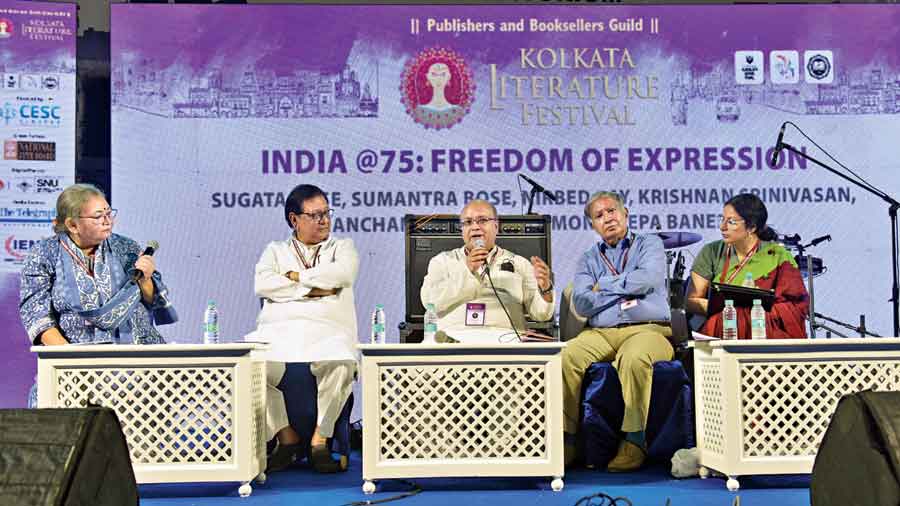India is facing “a hard struggle” to prevent its democracy from “becoming a strange hybrid of (Vladimir) Putin’s Russia and Xi Jinping’s China”, said Sumantra Bose, a professor of international and comparative politics at the London School of Economics.
Bose was speaking at a session on India @ 75: Freedom of Expression at the Kolkata Literature Festival, being held in association with The Telegraph at Kolkata Book Fair.
“Self-censorship is a sure sign of a gripping authoritarianism taking over the society and the polity. We have already had in India elements of both Putin’s Russia and Xi Jinpin’s China…. Unfortunately, I had to say this in the 75th year of India’s independence that it is not only Kashmir that is at the crossroads — the title of my new book — but it is India at the crossroads,” said Bose.
“We stand...at the crossroads where we face the hard struggle to prevent our democratic countryinto becoming a strange hybrid of Putin’s Russia and Xi Jinpin’s China.”
Bose, the grand nephew of Netaji Subhas Chandra Bose, said India might not have been as “advanced” as China in mass surveillance but has made an alternative arrangement to pursue the path of surveillance. “We are not that advanced yet. We had to buy our technology… Pegasus from a rogue state. That’s the difference....”
Former foreign secretary Krishnan Srinivasan, who spoke at the session, said intolerance in India was not a recent phenomenon but the threat has increased over the years. “I don’t think there ever was a golden age in India as far as tolerance is concerned. I think these unnecessary legislations need to be amended.”
Later, he told Metro the arrest of journalist Siddique Kappan was a case in point to show how a severe legislation was implemented to target a member of the minority community. “…That journalist who was arrested for going to Hathras. Think of the case of Rana Ayyub,” he said.
Kappan was arrested in 2021 on terror charges while travelling to Hathras where a Dalit teen had been gang-raped and murdered. Karnataka police have booked journalist and author Rana Ayyub for allegedly describing the anti-hijab protesters in the state as “Hindu terrorists” in an interview to the BBC.
Author Nirbed Ray said the murder of Gauri Lankesh must not stop others from keep on their fighting for the freedom of speech.
Kanchan Kanojia, humanitarian aid and research professional, also spoke at the session moderated by journalist Monideepa Banerjie.
